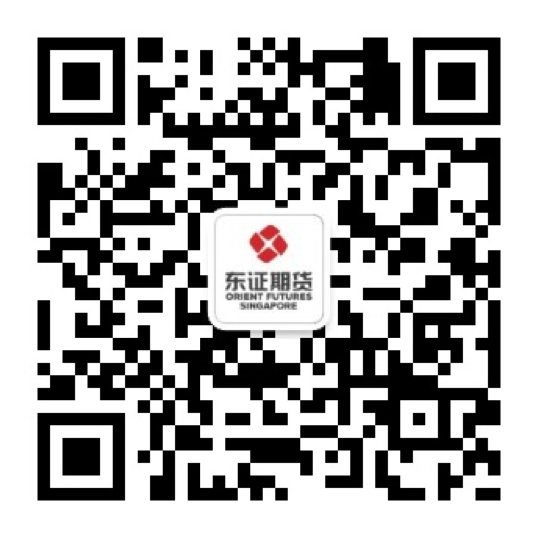
The internationalisation of the iron ore futures contracts has given greater access to the global commodity community to trade in the world’s biggest onshore ferrous market.
When it comes to trading commodities, the iron ore market is a staple that is largely linked to the world’s economic growth, GDP and industrial activity.
Unlike precious metals such as gold and silver that are linked to their monetary & intrinsic value, iron ore is utilised in construction and steel production making its industrial demand a key driving factor for its price action.
Traders of iron ore can go bullish on the metal if they feel the economy is growing with an increased need for construction and steel. However, during a recession or economic downturn, the demand for iron ore may fall, resulting in a price fall.
To capitalise on this, traders can choose to be bearish and short the iron ore market if they believe the price will fall.
Iron ore is the primary raw material used in the production of steel. Steel products can be in various forms including steel rebar, steel plates and hot-rolled coils and are the key materials used in construction, shipbuilding and other manufacturing activities.
To trade iron ore, traders can buy or sell iron ore futures contracts on exchanges such as the Dalian Commodity Exchange (DCE) in lots of 100 metric tonnes (MT) with a minimum trading margin of 5% of the contract value.
For example, the iron ore futures contract in the DCE is priced in CNY(RMB) with an annual trading volume of 982 million lots.
This can be done in order to hedge the exposure of physical iron ore or to take a position on how the price of iron ore will move.
In this article, we will take you through 5 essential things you should understand about the iron ore market to make more informed trading decisions.
5 Things About Iron Ore Futures Trading You Need To Know
1. The Chinese Market & Economic Growth Heavily Affects The Iron Ore Market
While iron ore is a global commodity with countries such as Australia and Brazil contributing to its supply and demand, China is one country that heavily affects iron ore prices.
China might be only the 3rd largest producer of iron ore, China’s rapid modernisation and construction growth has seen it emerge as one of the world’s leading iron ore consuming countries.
An increased demand for steel in China is likely to help spur a rise in iron ore prices. Conversely, a slowdown in China’s economic growth could contribute to falling iron ore prices due to reduced industrial demand.
2. Steel & Infrastructure Demand Are Key Drivers Of Iron Ore Prices
There are a myriad of fundamental factors that drive iron ore prices and should be carefully considered before you trade the metal.
Countries like China and India have a high demand for steel thanks to their ever-expanding construction industry. During booming times, steel is required for the construction of buildings thanks to its properties and relative cost-effectiveness, causing the price of iron ore (a component of steel) to rise in price.
On the other side of the equation, supply also affects the price of iron ore. From bad weather to mine shutdowns in big producer countries such as Brazil, Australia or China could cause iron ore prices to rise.

3. Exchanges To Trade Iron Ore Futures
The futures market allows traders to actively trade iron ore futures through a variety of exchanges.
There are two main exchanges you should be aware of when trading iron ore futures.
The first is through SGX (Singapore Exchange) where you can trade multiple types of Chinese iron ore futures in contract sizes of either 100 or 500 metric tonnes across various iron purity grades from 58% to 65%.
You can also trade iron ore futures on the Chinese Dalian Commodity Exchange (DCE). It is the world’s biggest iron ore derivative market. Iron ore futures contracts here are in lots of 100 metric tonnes and physical delivery can be taken.
4. Futures Trading Requires Initial Margin & Maintenance Margin
Trading futures requires you to provide an initial margin and maintenance margin. Depending on the exchange, the initial margin can be anywhere from 5 to 10% of the contract that is being traded.
Maintenance margin on the other hand is money that a trader must have in their account to continue holding their futures contract position.
In the event the funds in the margin account drop below the maintenance margin amount, the trader will receive a margin call to top up their account.
For iron ore futures contracts in the DCE, the minimum trading margin is 5% of the contract value.
5. Trading Iron Ore Futures In The Chinese Market Requires An Overseas Intermediary
Trading in the Chinese markets through exchanges such as the DCE, Zhengzhou Commodity Exchange (ZCE) and Shanghai International Energy Exchange (INE) requires traders to either go through a domestic Chinese futures broker that is a member of the exchange or through an overseas intermediary.
Foreigners outside of China will need to go through an overseas intermediary to set up a trading account with a domestic futures firm in order to trade.
Through this avenue, international traders can use US dollars and offshore RMB to meet the initial trading margin requirements as well as trade free of Chinese taxes. This makes the process easy and hassle-free.
Foreign investors and traders can trade iron ore futures on the Dalian Commodity Exchange (DCE) through its iron ore derivative contract.
With China’s drive to open its futures market to the world, investors outside of China can now easily invest and trade Chinese futures contracts that include:
- Crude oil futures
- Iron ore futures
- TSR20 rubber futures
- Low-sulfur fuel oil futures
- Palm olein futures
- Copper futures
- Purified terephthalic acid (PTA) futures

Start Trading Iron Ore Futures Today With Orient Futures
At Orient Futures, we provide traders with access to China’s derivative markets to trade iron ore futures.
We are an official MAS regulated broker as well as an official overseas intermediary, allowing traders to access a spectrum of futures and options in Chinese exchanges including the INE, DCE and ZCE.
With us, you can enjoy direct access to trading, clearing and settlement. Our parent company, Shanghai Orient Futures, is the largest broker in terms of aggregated volume across the five regulated exchanges in China.
Learn more about trading iron ore futures with Orient Futures here.





